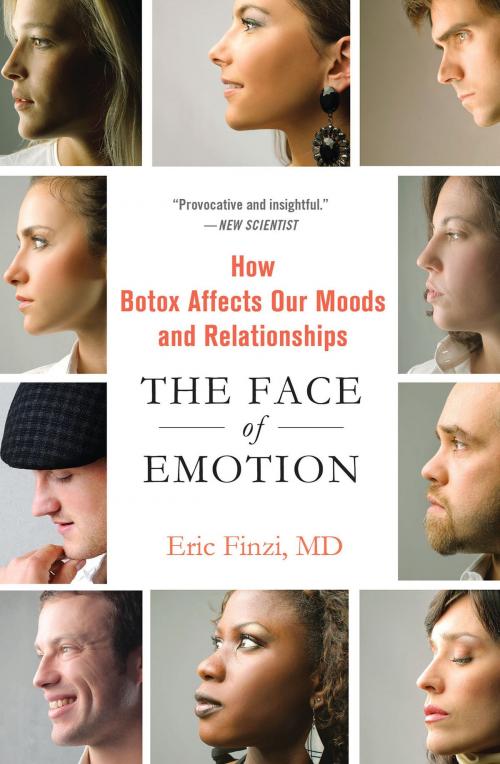The Face of Emotion
How Botox Affects Our Moods and Relationships
Nonfiction, Health & Well Being, Psychology, Physiological Psychology, Cognitive Psychology, Mental Health| Author: | Eric Finzi, MD | ISBN: | 9781137333391 |
| Publisher: | St. Martin's Press | Publication: | January 29, 2013 |
| Imprint: | St. Martin's Press | Language: | English |
| Author: | Eric Finzi, MD |
| ISBN: | 9781137333391 |
| Publisher: | St. Martin's Press |
| Publication: | January 29, 2013 |
| Imprint: | St. Martin's Press |
| Language: | English |
William Shakespeare famously wrote that "a face is like a book," and common wisdom has it that our faces reveal our deep-seated emotions. But what if the reverse were also true? What if our facial expressions set our moods instead of revealing them? What if there were actual science to support the exhortation, "smile, be happy?" Dermatologic surgeon Eric Finzi has been studying that question for nearly two decades, and in this ground breaking book he marshals evidence suggesting that our facial expressions are not secondary to, but rather a central driving force of, our emotions. Based on clinical experience and original research, Dr. Finzi shows how changing a person's face not only affects their relationships with others but also with themselves. In his studies using Botox, he has shown how inhibiting the frown of clinically depressed patients leads many to experience relief. This work is a dramatic departure from the neuroscience-based thinking on emotions that tends to view emotions solely as the result of neurotransmitters in the brain. Part absorbing medical narrative, part think piece on the nature of emotion, this is a bold call for us to rethink the causes of unhappiness.
William Shakespeare famously wrote that "a face is like a book," and common wisdom has it that our faces reveal our deep-seated emotions. But what if the reverse were also true? What if our facial expressions set our moods instead of revealing them? What if there were actual science to support the exhortation, "smile, be happy?" Dermatologic surgeon Eric Finzi has been studying that question for nearly two decades, and in this ground breaking book he marshals evidence suggesting that our facial expressions are not secondary to, but rather a central driving force of, our emotions. Based on clinical experience and original research, Dr. Finzi shows how changing a person's face not only affects their relationships with others but also with themselves. In his studies using Botox, he has shown how inhibiting the frown of clinically depressed patients leads many to experience relief. This work is a dramatic departure from the neuroscience-based thinking on emotions that tends to view emotions solely as the result of neurotransmitters in the brain. Part absorbing medical narrative, part think piece on the nature of emotion, this is a bold call for us to rethink the causes of unhappiness.















